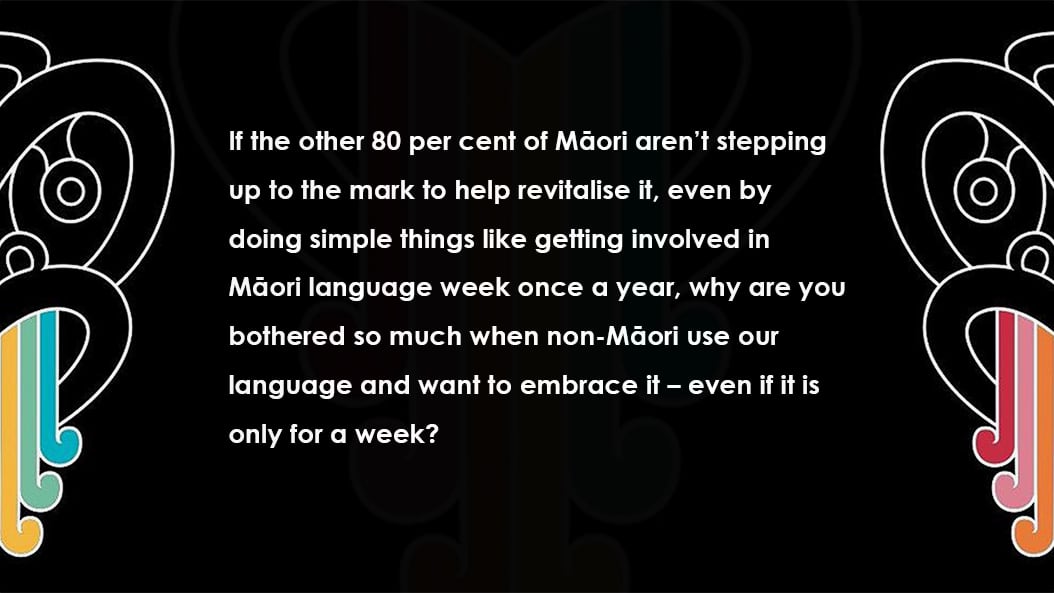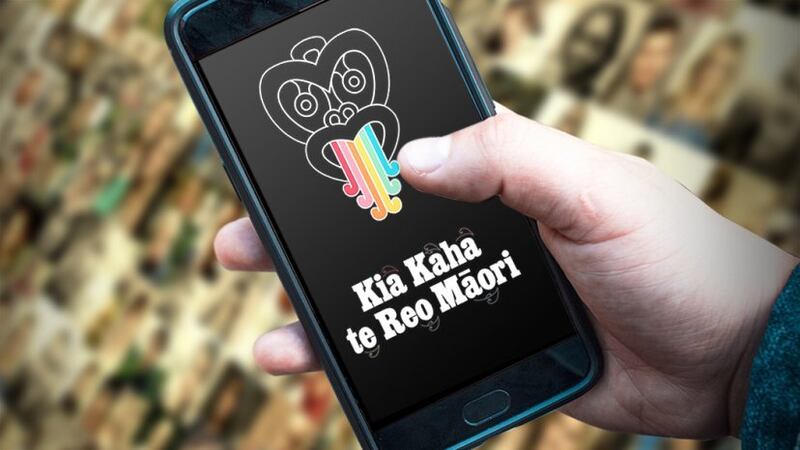Opinion by Peata Melbourne
Reflecting on Māori Language Week this year, watching people pride themselves in taking up some of the reo Māori challenges was uplifting as we endured our fifth week of Alert level 4 lockdown in Auckland.
But it didn’t go past without ill-informed criticism. There were several comments being made about te reo Māori that bother me, such as; speaking te reo Māori won’t get you anywhere in life, the Māori language and culture hold no value in this country, and this notion that you can only use te reo Māori if you have Māori whakapapa.
A friend of mine, who is also Māori, once told me she wanted to send her daughter to kōhanga reo so her girl could grow up speaking her own language. While my friend is well-accustomed to Māori tikanga, the door to learning the language hadn’t yet presented itself. But her European husband rejected her wishes and said to her, “that (Māori) language won’t get our daughter anywhere in this world. Why waste time learning it?”
To him, and anyone else that thinks the same – you have not only been fooled but been proven woefully wrong and my world and the people that fill it are living proof. Here’s why.
Purea Nei
Without venturing down skite-lane too much, as I (a reo speaker) write this, I’m listening to an award-winning album I co-produced with an over-achieving (reo-speaking) cousin of mine from Tūhoe revisioning songs of the late Dr Hirini Melbourne, our uncle (also a reo speaker).
Like many others of his generation, his knowledge of te reo Māori and our world saw him become a leader in the revitalisation of traditional Māori musical instruments, history and Māori song composition.
Everyone in this country knows his songs, I’ve heard you all sing Purea Nei or Ngā Iwi E at numerous events, Māori and non-Māori alike.
I could go on name-dropping all the distinguished and extraordinary reo-speakers I know, and the fact is I know too many to mention but they are the reason I have this confused look on my face when people say “speaking Māori won’t get anyone anywhere” or it doesn’t hold “value”.
I should add that these reo extraordinaires I know are not all of Māori whakapapa.
Anyone who holds these notions is in my opinion a load of kaka.
Give it a go
Borne out of a drive to revive and reclaim our native language, Māori Language Week lays down the challenge to everyone to give it a go, share their learning and encourage others to do the same.
As most people know, our colonisers refused to let Māori speak Māori at school and tricked the adults into believing it was of no worth for our future. Many of that generation are still alive.
If you’re non-Māori and don’t want to learn the language – I get it. If you’re non-Māori and want to learn the language – I get that too.
What I don’t get is if you are Māori and choose not to embrace it. I can’t understand why you wouldn’t want to speak a language that can make you feel proud, complete and opens you up to endless opportunities.
Ignore the haters
Gone are the days where you can’t access the language anymore. There are apps, podcasts, online courses, books, fee-free wānanga, and TV programmes galore to help.
The biggest challenge you’ll have is not letting the haters discourage you, and its not just the non-Māori throwing out words of criticism, it’s the Māori from that generation I was talking about earlier and sometimes their kids.

Some of you might feel embarrassed, and some of you may have nothing but dreadful memories of anything associated with Māori. There is an array of reasons why people don’t or won’t learn te reo Māori.
If you’re like me, haters only force you to rise above the challenge but many of those who do try are unfortunately taken out at the knees by none other than Māori themselves, and how dare you Māori mā.
This group of people within the Māori community, who can’t seem to distinguish the difference between appropriation of a culture, and embracing a culture.
It’s this same group, time and time again, who come out throwing all their spears of sorrow and using words like ‘mana’, ‘taonga’, ‘tapu’ and ‘whakapapa’ to try to deter all the enthusiastic ones who are doing exactly what the rest of us have been encouraging everyone to do – and give it a go. I sit here embarrassed by you ... and maybe a little bit sad at you too.
As it stands, only 3 per cent of the Māori population is fluent, and only 20 per cent can hold a basic conversation. This is the impact of colonisation, and we are in the middle of revitalisation.
If the other 80 per cent of Māori aren’t stepping up to the mark to help revitalise it, even by doing simple things like getting involved in Māori language week once a year, why are you bothered so much when non-Māori use our language and want to embrace it – even if it is only for a week?
Part of your DNA
Finally, what’s in it for non-Māori who want to learn the language?
You’ll be interested to know Māori have created an economy with an asset base worth $70 billion that’s projected to reach $100b before 2030. If you like dancing, we have one style called a ‘haka’ that you can use to lay a challenge, acknowledge someone or something special, or just do it for entertainment. Though I personally prefer entertaining with the poi – the haka gets me all angry-bird.
Then we have tattoos called tā-moko that we use to share our life experience or connections. Even our Ozzy mates across the ditch are flaunting them now. They want a slice of Aotearoa exotica too, can’t blame them really.
Give us a guitar and we’ll sing in perfect harmony to any melody. When our people are in a crisis, we’ll open up our homes and marae and provide shelter, food and support.
We are at the front and centre of the tourism business because people want to travel here to see us and experience our culture. We’re passionate people with a great sense of humour and laugh like we mean it. Why wouldn’t you want to be a part of this world?
For those who are Māori and haven’t considered learning it, the language is part of your DNA. Embrace it, and thank the gods you were blessed with whakapapa Māori.

